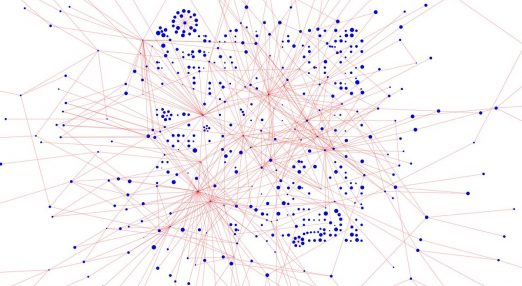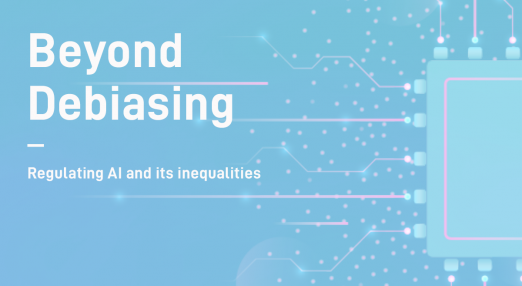Blogs
Filter by...
-

Biometric ‘permission to travel’ scheme in Borders Bill will affect tens of millions of people
The attack on the asylum system proposed by the UK government in the Nationality and Borders Bill has provoked outrage. However, the Bill also includes proposals to introduce an electronic 'permission to travel' scheme that would involve gathering biometric and other data from tens of millions of people. The UK Parliament's Joint Committee on Human Rights (JCHR) is conducting legislative scrutiny on the Bill. EDRi's member Statewatch submitted written observations to the inquiry last week.
Read more
-

EDRi-gram, 22 September 2021
In this EDRi-gram, we challenge the technical ‘debiasing’ as the main solution to AI-driven structural inequality and call on policymakers to tackle the root causes of the power imbalances caused by the pervasive use of AI systems. We also look at how Big Tech platforms are harming users and join forces with EDRi's member Panoptykon Foundation, along with 49 civil rights organisations, to urge the EU to empower users and ensure effective oversight of algorithms in their amendments to the Digital Services Act.
Read more
-

Register research turned privacy disaster. Epicenter.works nominates Sebastian Kurz for a Big Brother Award
Research is important. Using research as a cover to obtain unchecked access to sensitive official data is not. At the beginning of July, the Austrian chancellor, Sebastian Kurz, submitted to pre-parliamentary consultation a bill that would cause a seismic shift in how the government treats its citizens’ data. EDRi's member epicenter.works shares that from a privacy perspective the present bill is fundamentally flawed and places an enormous amount of data covering the entire population at risk for abuse.
Read more
-

Eurodac: Council seeks swift agreement on expanded migrant biometric database
The Slovenian Presidency of the Council is planning to accelerate negotiations on a vast expansion of the Eurodac database, which will hold sensitive data on millions of asylum seekers and migrants in an irregular situation, by 'delinking' the proposed rules from other EU asylum and migration laws under discussion.
Read more
-

Booklet: If AI is the problem, is debiasing the solution?
The development and deployment of artificial intelligence (AI) in all areas of public life have raised many concerns about the harmful consequences on society, in particular the impact on marginalised communities. EDRi's latest report "Beyond Debiasing: Regulating AI and its Inequalities", authored by Agathe Balayn and Dr. Seda Gürses,* argues that policymakers must tackle the root causes of the power imbalances caused by the pervasive use of AI systems. In promoting technical ‘debiasing’ as the main solution to AI driven structural inequality, we risk vastly underestimating the scale of the social, economic and political problems AI systems can inflict.
Read more
-

EDRi-gram, 8 September 2021
In the first post-summer edition of the EDRi-gram, we are excited to announce EDRi's new staff members who have recently become part of the team. Join us in welcoming Fenya Fischler, who will be our Membership and Community Officer & Belén Luna, our new Campaigns Officer! We are also celebrating a big milestone in our signature collection to ban biometric mass surveillance as 60 000 people have signed the #ReclaimYourFace petition (hurray)
Read more
-

EFF to Council of Europe: Flawed Cross Border Police Surveillance Treaty Needs Fixing
EDRi member Electronic Frontier Foundations (EFF) has joined European Digital Rights (EDRi), the Samuelson-Glushko Canadian Internet Policy & Public Interest Clinic (CIPPIC), and other civil society organizations in recommending 20 solid, comprehensive steps to strengthen human rights protections in the new cross border surveillance draft treaty that is under review by the Parliamentary Assembly of the Council of Europe (PACE). The recommendations aim to ensure that the draft treaty, which grants broad, intrusive police powers to access user information in criminal cross border investigations, contains a robust baseline to safeguard privacy and data protection.
Read more
-

EU: €5 million for new wiretapping technologies
The European Commission has made €5 million available for research projects that aim to help law enforcement authorities maintain the ability to intercept telecommunications – something which is threatened by the adoption of new technologies such as 5G networks and “edge computing”.
Read more
-

UK Investigatory Powers Tribunal finds the regime for bulk communications data to be incompatible with EU law
The UK Investigatory Powers Tribunal issued a declaration in EDRi member Privacy International's challenge to the bulk communications data regime, finding UK legislation to be incompatible with EU law.
Read more
-

How a rotten Apple (and bad legislation) could spoil our private communications
In August 2021, Apple announced significant changes to their privacy settings for messaging and cloud services, only to “pause” it in early September. Earlier this summer, the European Parliament adopted in a final vote the derogation to the main piece of EU legislation protecting privacy, the ePrivacy Directive, to allow Big Tech to scan your emails, messages, and other online communications.In August 2021, Apple announced significant changes to their privacy settings for messaging and cloud services, only to “pause” it in early September. Earlier this summer, the European Parliament adopted in a final vote the derogation to the main piece of EU legislation protecting privacy, the ePrivacy Directive, to allow Big Tech to scan your emails, messages, and other online communications.
Read more
-

CJEU in surprise judgment: zero rating is illegal under EU law
Europe’s highest court has put an end to a long-standing legal battle around the EU’s Net Neutrality Regulation. In a landmark judgement published last week, the Court of Justice of the European Union (CJEU) confirmed what EDRi and its members have argued for years: that zero rating is illegal under EU law because it violates the neutrality obligations of internet access providers
Read more
-

Facebook’s dominance makes it difficult to question the truth
What we as a society understand as true is changeable, and questioning the truth can only be done with a healthy public debate. But the dominance of the platforms that facilitate our public debate makes difficult.
Read more
